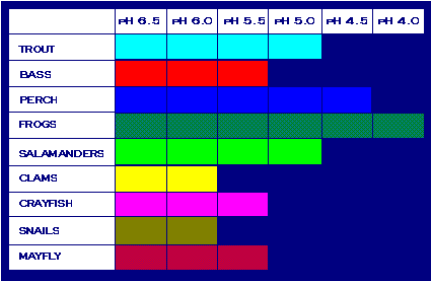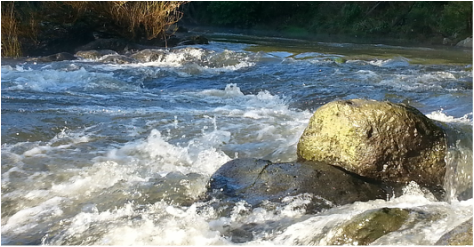
A healthy stream should be slightly alkaline and have a pH level in a range of between 7.2 and 8.0 (7 is neutral) but water that falls as rain has washed CO2 out of the atmosphere and is slightly acidic at 5.7. This acidic rainwater is made more alkaline and moved to 7.2+ by washing minerals out of the rocks and soil and the addition of organic matter from trees and grasses.

The current level of CO2 in the atmosphere has just reached 400 ppm compared to its natural high of 280 ppm, 150 years ago before we started burning coal. This has raised the acidity of fresh water from the atmosphere by 33%.
Rivers and streams are hugely variable but never the less this big change in acidity must be affecting the natural habitat of our freshwater aquatic life in much the same way that ocean acidity is affecting our mussels and corals and anything else with a calcium carbonate shell like plankton.

It highlights the necessity of looking after the streams we have and treating a health stream as a resource to combat increasing spells of drought caused by a warming world.



 RSS Feed
RSS Feed